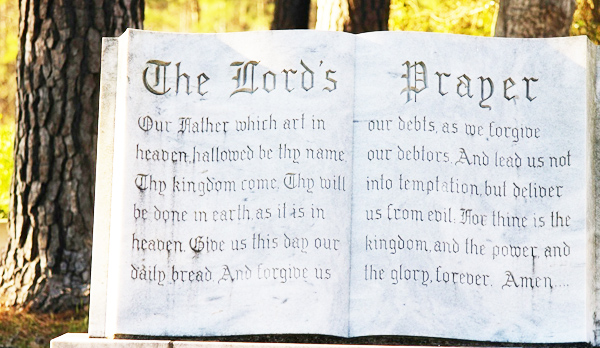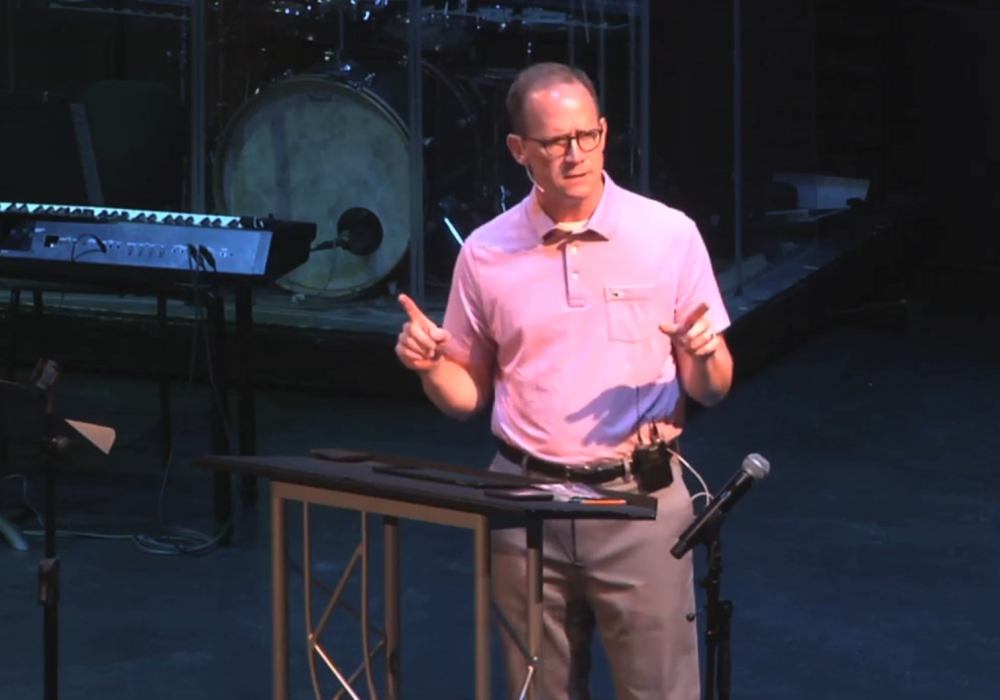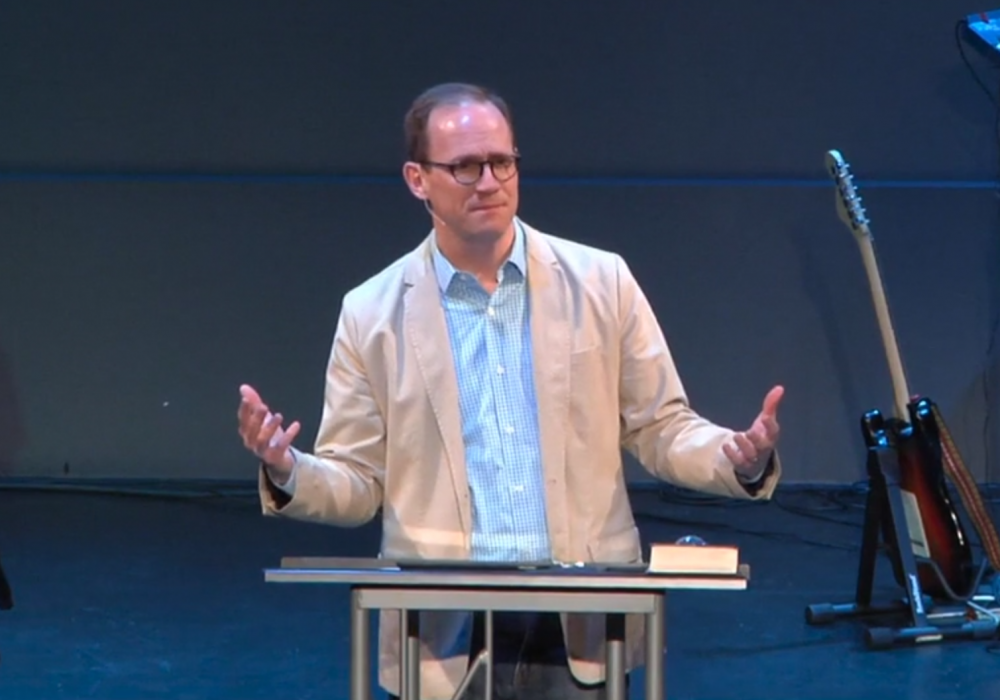Your kingdom come (Luke 11:2). In my last post I began a series of brief meditations on the Lord’s Prayer. The prayer begins with the request for God’s name to be hallowed, followed immediately with the prayer for his kingdom to come. When we ask for God’s kingdom to come, we are reminded that not only is God’s name and glory to come first — but also God’s desires, his will, his purposes, and his authority.
Prayer
Hallowed Be Your Name
When you pray, say: “Father, hallowed be your name” (Luke 11:2). It is doubtless true that the Lord’s Prayer is routinely abused around the globe every day, mouthed by people who neither think about its meaning, nor would mean it even if they did. This is why Martin Luther referred to the Lord’s Prayer as “the greatest martyr on earth.” It is, as it were, butchered by thoughtless, soulless prayer on a daily basis. However, the other extreme, into which many evangelicals today have fallen (and it’s just as bad) is this: we have largely neglected it!
That God May Be Known To Be God
A friend who has recently been reading through David Brainerd’s biography shared with me a stirring passage from Brainerd’s journal. What motivated this man — who spent years in sacrifice and service of the gospel, and eventually died an early death for the spread of it — to continue laboring in the face of excruciating pain and disappointment? The overarching, undergirding concern “that God might be known to be God in the whole earth” and that “God have the glory forever.”
God’s Thought-Exceeding Power
Paul, in the middle of a praise-hymn to God in Christ, makes the astounding claim that He is “is able to do far more abundantly than all that we ask or think,” because of the power that is working in Christian believers (Ephesians 3:20). God is able! He is able to do what we ask; he is able to do more than we think; he is able to do above all that we can ask or think. And this doesn’t just mean that God is capable of answering more prayers than we are asking; it also means he is answering
Boldness Through the Blood
“[We have] boldness to enter into the holiest by the blood of Jesus” (Hebrews 10:19). Access to the holy God who created us is the most precious commodity in the universe. So precious, in fact, that no person can afford it, can purchase it with any amount of money or sacrifice or even personal godliness. This is the lesson we are meant learn from the Old Testament sacrificial system of worship. The innermost room (the “holiest”) of the temple was where God’s presence was experienced in a special way. Yet the writer of Hebrews reminds us that there is only
Does Prayer Make a Difference?
David Brainerd observed, “The idea that everything would happen exactly as it does regardless of whether we pray or not is a specter that haunts the minds of many who sincerely profess belief in God. It makes prayer psychologically impossible, replacing it with dead ritual at best.” The answer to the question “Does prayer make a difference?” is definitely, “Yes!”. But let’s consider how and why the Bible teaches us that prayer matters so much.
God of the Runaway
The same Jesus who teaches us to pray our Father in heaven tells us God runs to meet his children who come to him by faith. So even as you run to God today, when you do, Jesus says you will find that God is running to receive you. Take the parable of the prodigal son. In the beginning, the son wants what he can get from the father:
Why Pray Without Ceasing?
Paul briefly exhorts in 1 Thessalonians 5:17 for believers to “Pray without ceasing.” Yet some of us might ask the question: “Why?” Why pray without ceasing? That seems a tall order for busy people who have many life obligations on their plate already. But consider the biblical inducements to prayer by asking yourself a few clarifying and self-examining questions:
The Dangers and Benefits of Revival
Will you not revive us again, that your people may rejoice in you? (Psalm 85:6). We are in desperate need of revival. Our marriages, our families, our churches, our nation (no matter what nation we hail from)—in every arena of life and society and religion we need the omnipotent, renewing visitation of the Holy Spirit. Yet many of us as Christians do not know what “revival” even means precisely.
Christians Should Long For Giftedness
Pursue love, and earnestly desire the spiritual gifts… (1 Corinthians 14:1). Christians should desire giftedness. Although any spiritual gift is useless unless it is practiced in love (1 Corinthians 13:1-2), Paul exhorts the saints to desire the spiritual gifts. When was the last time you prayed for spiritual gifts? Spiritual gifts can only come from the Spirit, and so prayer is the best way to pursue them.
A Prayer to Know the Unknowable
For this reason I bow my knees before the Father… (Ephesians 3:14). In Ephesians 3:14-19, Paul gives us four specific prayer requests he had for the people of God. And all of them center around the person and work of Jesus Christ: that Christ’s Spirit give you strength, as Christ lives in you by faith, giving you an ever-deepening, familiar knowledge of Christ-love, that you may enjoy the very best, the fullness, of what God has to offer: Jesus!
When I Am Weak, Then I Am Strong
But he said to me, “My grace is sufficient for you, for my power is made perfect in weakness.” Therefore I will boast all the more gladly of my weaknesses, so that the power of Christ may rest upon me. For the sake of Christ, then, I am content with weaknesses, insults, hardships, persecutions, and calamities. For when I am weak, then I am strong (2 Corinthians 12:9-10). After Paul fervently prayed for God to remove a particular trial from his life, he received an answer.
Turning Promises Into Prayers
“Surely I am coming soon.” “Amen. Come, Lord Jesus!” – Revelation 22:20 When the ascended Christ promises the apostle John that the Second Coming is imminent, John replies by turning the promise of God into a personal prayer to God. “Lord, you promise that your return is certain and soon-coming; yes, Lord, please do what you have said.” Is this how we respond to the clear prophecies and sure promises of God in his Word?













